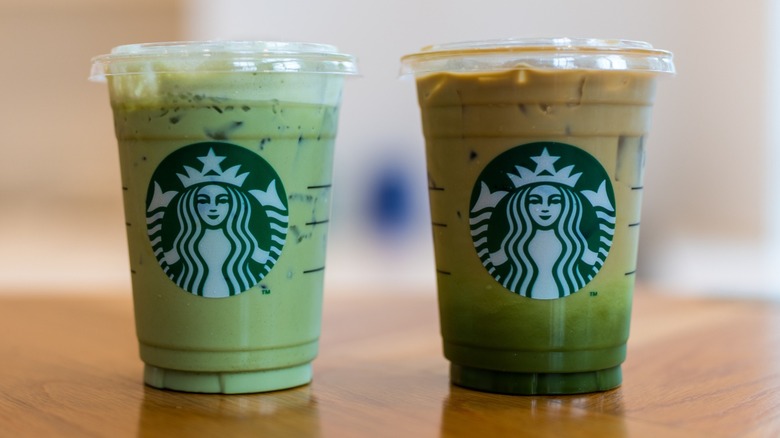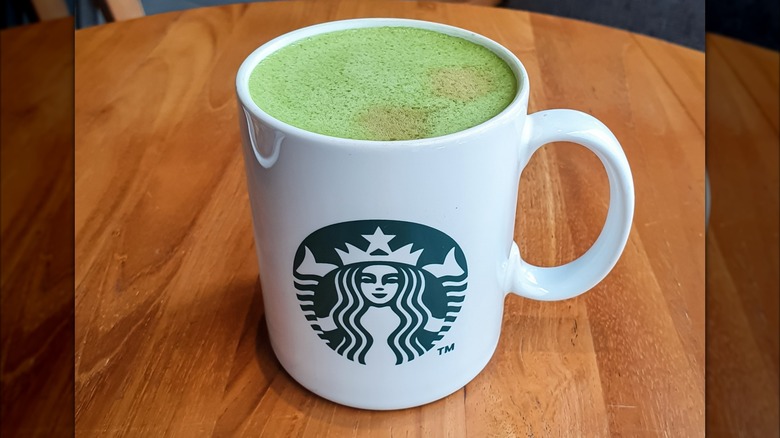Does Starbucks Matcha Have Caffeine In It?
There's always a reason to visit Starbucks, whether you're there for a study group, trying the limited-edition Valentine's Day drinks, or getting your hands on the newest seasonal reusable cups. Starbucks drinks are always there to give you that little zing of energy you may need to start the day (or to make it until the end). From caffeinated Refreshers to double shots of espresso, it seems like everything on the Starbucks menu is designed to give you a buzz. Even Starbucks' matcha drinks have caffeine, though typically less than a standard cup of coffee.
A grande Iced Matcha Latte from Starbucks (which is 16 ounces) contains about 65 milligrams of caffeine, while a tall (12 ounces) contains about 40 milligrams and a venti (24 ounces) contains about 85 milligrams. With around 150 milligrams of caffeine in a Starbucks grande Iced Caffè Latte, the Matcha Latte's caffeine levels are a small blip well within the recommended daily caffeine intake of 400 milligrams. Since the Starbucks matcha cold foam is made with real matcha powder, it, too, contains a small dose of caffeine.
Matcha at Starbucks offers a smooth caffeine kick
It's not just Starbucks' matcha powder that contains caffeine. Matcha comes from the ground-up young leaves of the Camellia sinensis plant – the same species used to make green and black tea. While these leaves are steeped in boiling water to make tea, matcha powder is whisked with hot water in a wooden bowl to make a frothy, earthy drink. Even though matcha and green tea come from the same plant, matcha can often contain more caffeine than green tea due to the differences in how the beverages are prepared. Where a Starbucks Iced Matcha Latte may contain about 65 milligrams of caffeine, a Starbucks Iced Green Tea of the same size only contains between 25 and 30 milligrams.
Besides serving size affecting how much caffeine matcha drinks can contain, other factors, such as the quality of the matcha powder and the method with which it's brewed, can alter how high or low the caffeine levels will be. For years now, Starbucks' matcha drinks have come pre-sweetened, but as of winter 2025, Starbucks changed its matcha formula to offer sugar-free matcha beverages. Customers regularly prefer matcha-based drinks because they give them the energy boost that they're searching for without the jittery post-coffee feeling, thanks to an amino acid in matcha called L-theanine. Matcha strikes the perfect balance — enough caffeine to keep you going, but not enough to trigger that incessant, fidgety leg bounce.

